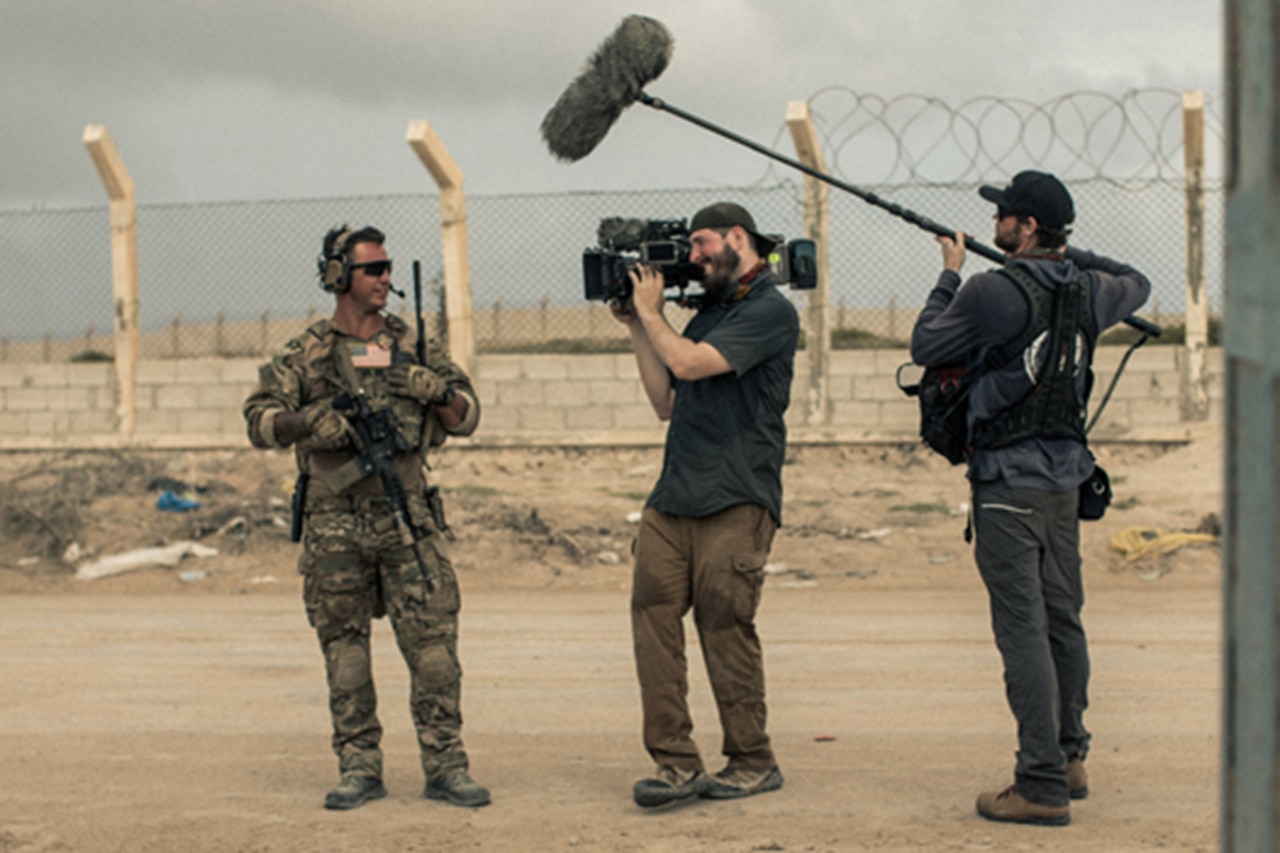- Joined
- Jan 22, 2017
- Messages
- 14,769
- Reaction score
- 22,596
- Location
- U.S.A.
- Gender
- Female
- Political Leaning
- Libertarian - Left
I'm sure many people have heard of the military industrial complex, but many have not heard of it's cousin, the military entertainment complex.
Most people don't realize the military has any connections with the film industry. However, the DOD actually has an entire office dedicated solely to Hollywood films that can be traced all the way back to WWI. This relationship exists for a simple purpose; to create pro-military propaganda. When watching the latest big Marvel or Transformers film, you might not think much about where all the random tanks, planes, battleships, Humvees, or even US soldiers come from. You might even assume they are surplus. In fact, they are often loaned out by the US military. The military allows the use of these assets under certain conditions, usually pertaining ensuring the movie portrays the US military in a positive light. They can demand a script is edited, a scene is cut, or the inclusion of whatever they want as part of the contractual use of these resources, which often significantly reduce the cost of filming compared to CGI.
Now, I'm at this point many of you are wondering what my source for these claims of propaganda conspiracy between the DoD and Hollywood are. Well, it turns out the DoD directly and publicly states their involvement and intentions.

Essentially, the DoD will allow film makers to use USG resources for their film...on the condition that the DoD gets to read and approve the script. These resources are hugely valuable to move producers. It greatly cuts the costs of production and looks better than using SFX.

 en.wikipedia.org
en.wikipedia.org
Most people don't realize the military has any connections with the film industry. However, the DOD actually has an entire office dedicated solely to Hollywood films that can be traced all the way back to WWI. This relationship exists for a simple purpose; to create pro-military propaganda. When watching the latest big Marvel or Transformers film, you might not think much about where all the random tanks, planes, battleships, Humvees, or even US soldiers come from. You might even assume they are surplus. In fact, they are often loaned out by the US military. The military allows the use of these assets under certain conditions, usually pertaining ensuring the movie portrays the US military in a positive light. They can demand a script is edited, a scene is cut, or the inclusion of whatever they want as part of the contractual use of these resources, which often significantly reduce the cost of filming compared to CGI.
Now, I'm at this point many of you are wondering what my source for these claims of propaganda conspiracy between the DoD and Hollywood are. Well, it turns out the DoD directly and publicly states their involvement and intentions.
The Defense Department has a long-standing relationship with Hollywood. In fact, it’s been working with filmmakers for nearly 100 years with a goal that’s two-fold: to accurately depict military stories and make sure sensitive information isn’t disclosed.
While Hollywood is paid to tell a compelling story that will make money, the DoD is looking to tell an accurate story. So naturally, there can be challenges in combining the two.
“There are compromises on both sides. There’s a point where we just have to say no -- ‘It’s either going to happen like this, or it’s not going to happen at all,’” Hyde said, although he admitted it rarely comes to that. Production agreements require the DoD to be able to review a rough cut of a film, so officials can decide if there are areas that need to be addressed before a film is released.

How & Why the DOD Works With Hollywood
Did you know the Defense Department has worked with Hollywood for nearly 100 years? Here are some details of that relationship.
www.defense.gov
Essentially, the DoD will allow film makers to use USG resources for their film...on the condition that the DoD gets to read and approve the script. These resources are hugely valuable to move producers. It greatly cuts the costs of production and looks better than using SFX.
Producers looking to borrow military equipment or filming on location at a military installation for their works need to apply to the DoD, and submit their movies' scripts for vetting. Ultimately, the DoD has a say in every US-made movie that uses DoD resources, not available on the open market, in their productions.[citation needed][4]
The movie Top Gun, produced by Don Simpson and Jerry Bruckheimer at Paramount Pictures, and with DoD assistance, aimed at rebranding the US Navy's image in the post-Vietnam era. By the end of the 1980s and early 1990s, Hollywood producers were stressing script writers to create military-related plots to gain production power from the US Military.


:quality(70)/cloudfront-us-east-1.images.arcpublishing.com/archetype/KY6UP2OWXBCTDLX7YGSGUDHCIQ.jpg)

